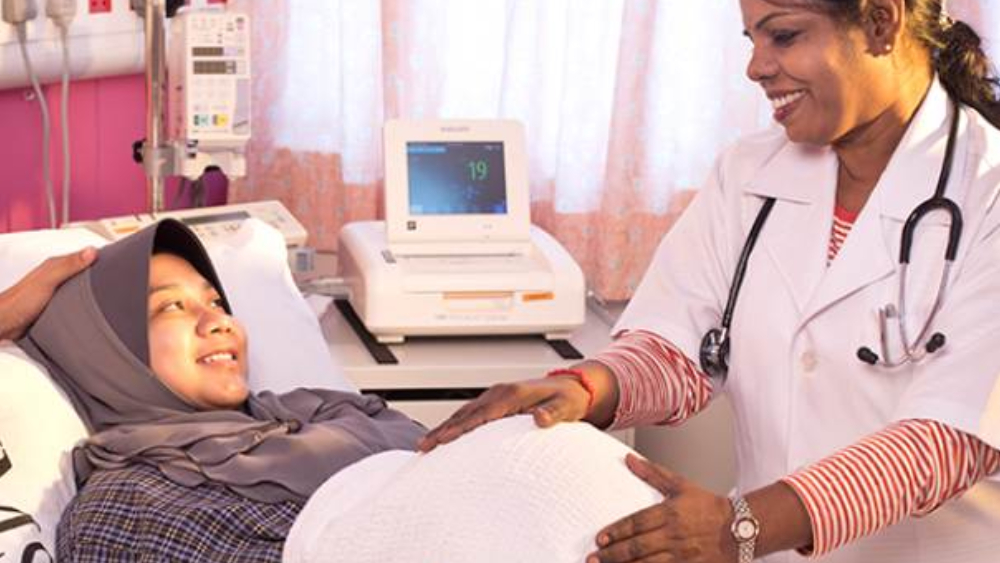#sivacaresforyou

In the realm of women's healthcare, the gynecology department plays a pivotal role in safeguarding and enhancing the well-being of women throughout their lives. As a specialized branch of medicine, gynecology focuses on the female reproductive system and addresses various health concerns unique to women. In this article, we delve into the importance of the gynecology department in advancing women's healthcare, exploring its key functions, services, and contributions to women's overall health and quality of life.
The gynecology department serves as a central hub for comprehensive care tailored to women's specific needs. It encompasses a wide range of services, including preventive screenings, diagnostic evaluations, and treatment options for various gynecological conditions. By addressing reproductive health, fertility, and other related issues, gynecologists play a vital role in empowering women to take charge of their health at different stages of life.
Regular gynecological examinations are fundamental for maintaining women's health and preventing potential health complications. Gynecologists perform routine pelvic exams, Pap smears, and breast examinations to screen for early signs of cervical, ovarian, and breast cancers. These screenings enable early detection and timely intervention, significantly improving the chances of successful treatment and recovery.
Reproductive Health and Family Planning The gynecology department offers essential guidance and support in matters related to reproductive health and family planning. Gynecologists counsel women on contraception options, fertility issues, and preconception planning. They also provide prenatal care during pregnancy and postnatal care after childbirth, ensuring both the mother and baby's well-being during this critical period.
Menstrual and Hormonal Disorders Gynecologists are experts in diagnosing and treating menstrual and hormonal disorders that can significantly impact a woman's quality of life. Conditions such as polycystic ovary syndrome (PCOS), endometriosis, and menstrual irregularities are managed through a combination of medical therapies and lifestyle modifications. By addressing these disorders, gynecologists help women lead healthier and more comfortable lives.
Management of Menopause The gynecology department provides valuable support to women as they transition through menopause. Menopause, characterized by hormonal changes and the cessation of menstruation, can bring about various physical and emotional challenges. Gynecologists offer hormone replacement therapy, lifestyle counselling, and management of menopausal symptoms to help women navigate this stage with greater ease and comfort.
Minimally Invasive Gynecological Surgery Advancements in medical technology have revolutionized gynecological surgery, allowing for minimally invasive procedures that offer significant benefits to patients. Gynecologists employ techniques such as laparoscopy and hysteroscopy to diagnose and treat conditions like fibroids, uterine abnormalities, and pelvic organ prolapse. Minimally invasive surgery results in smaller incisions, reduced scarring, shorter recovery times, and fewer postoperative complications.
Addressing Infertility Issues Infertility affects many women and couples worldwide, posing significant emotional and psychological challenges. The gynecology department plays a crucial role in investigating and addressing infertility issues through diagnostic tests, fertility counselling, and assisted reproductive technologies like in vitro fertilization (IVF). These interventions provide hope and support to couples seeking to conceive and build their families.
Screening for Sexually Transmitted Infections (STIs) Gynecologists play an essential role in educating women about the risks of sexually transmitted infections (STIs) and providing screening and testing services. Early detection and treatment of STIs are vital in preventing complications and protecting both the individual's health and that of their sexual partners.
Addressing Sexual Health and Wellness Gynecologists also address sexual health concerns, providing a safe and supportive environment for women to discuss any issues they may encounter. From sexual dysfunction to concerns related to intimacy, gynecologists offer guidance and treatment options to help women achieve a fulfilling and satisfying sexual life.
Mental Health and Well-being The gynecology department recognizes the intrinsic link between physical health and mental well-being. Gynecologists are attuned to the emotional aspects of women's health and provide empathetic support to patients facing mental health challenges. By fostering open communication and a holistic approach to care, gynecologists contribute to improved mental health outcomes for their patients.
The gynecology department is an indispensable pillar of women's healthcare, providing specialized services that address the unique health needs of women at various stages of life. From routine examinations and preventive screenings to managing complex gynecological conditions and fertility issues, gynecologists play a vital role in empowering women to prioritize their health and well-being. By promoting early detection, offering personalized care, and staying at the forefront of medical advancements, the gynecology department continues to advance women's healthcare, enhancing their overall quality of life and fostering a healthier future for all women.
Copyright ©2023 Siva Hospital - All rights reserved | Designed & Developed by Ayatiworks